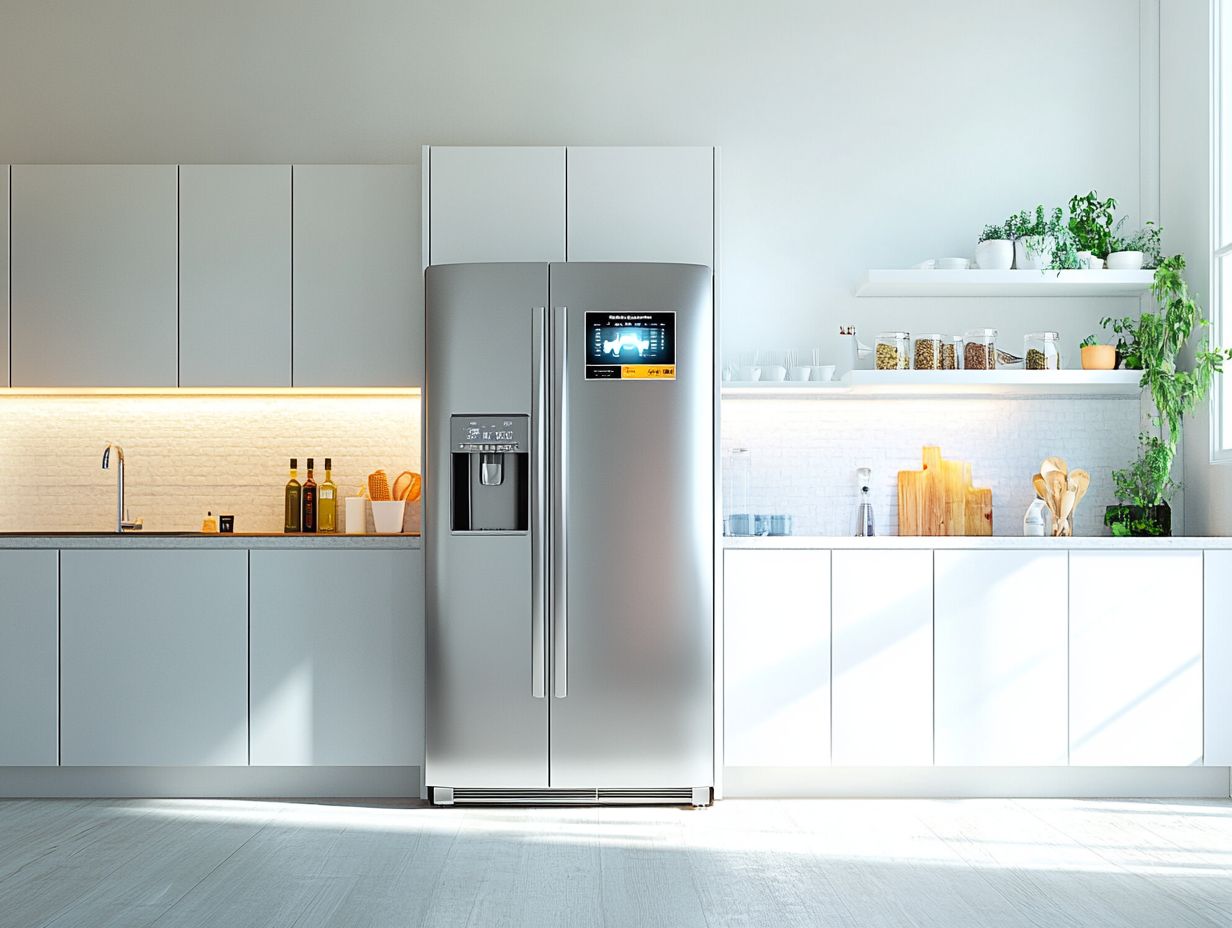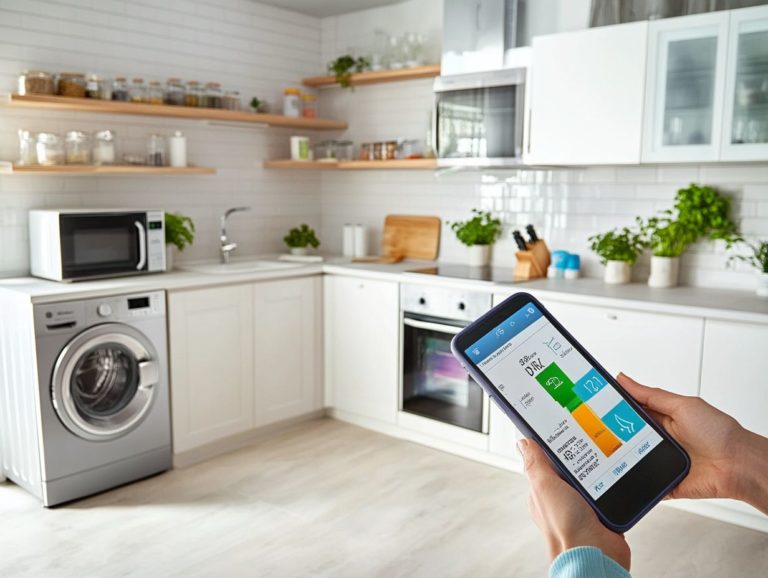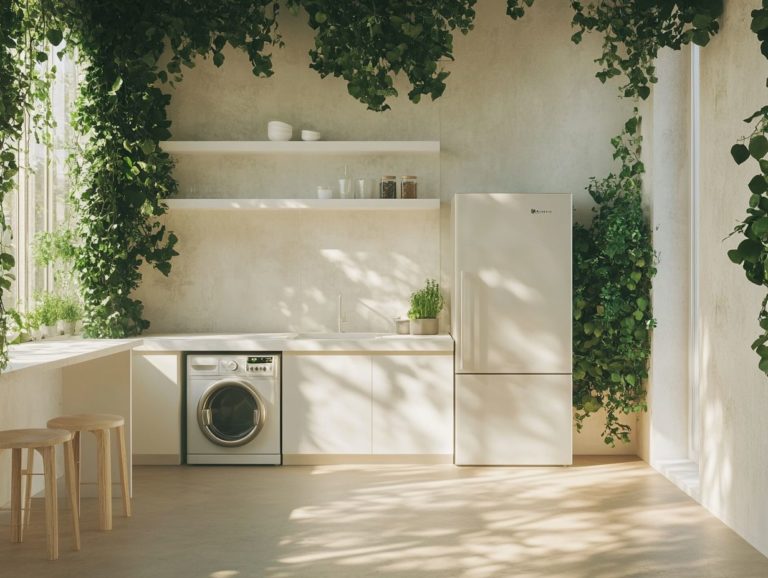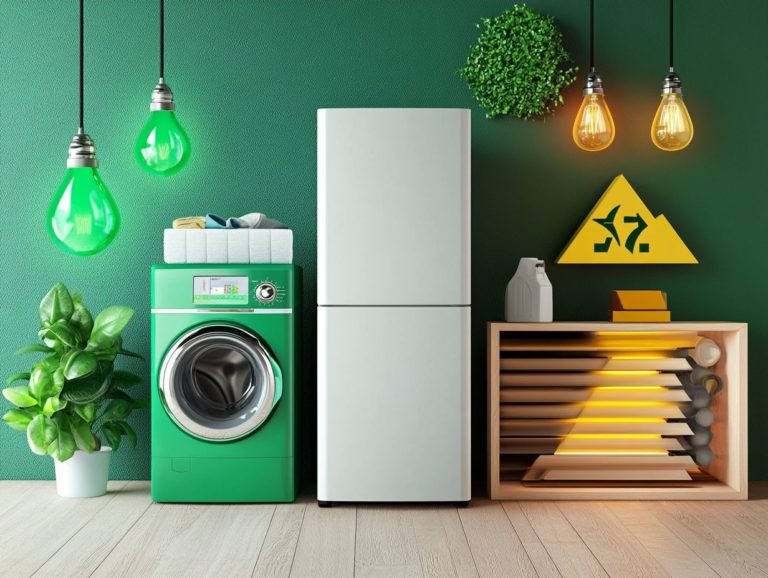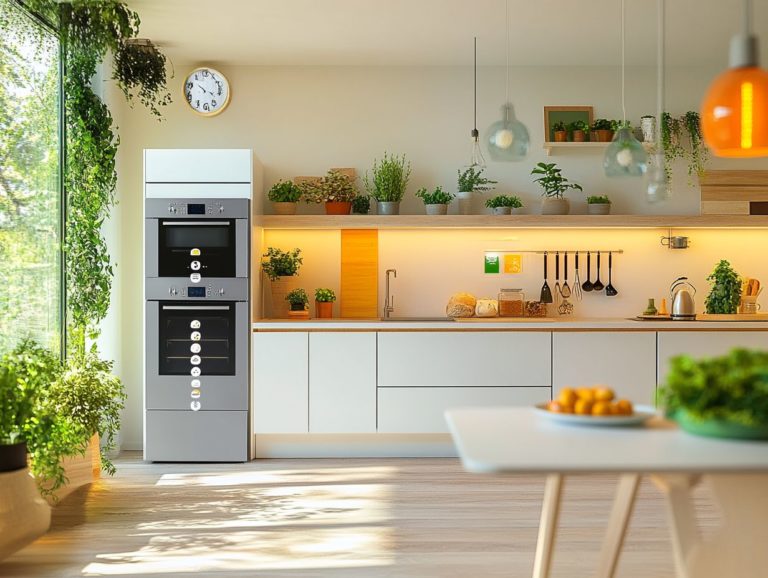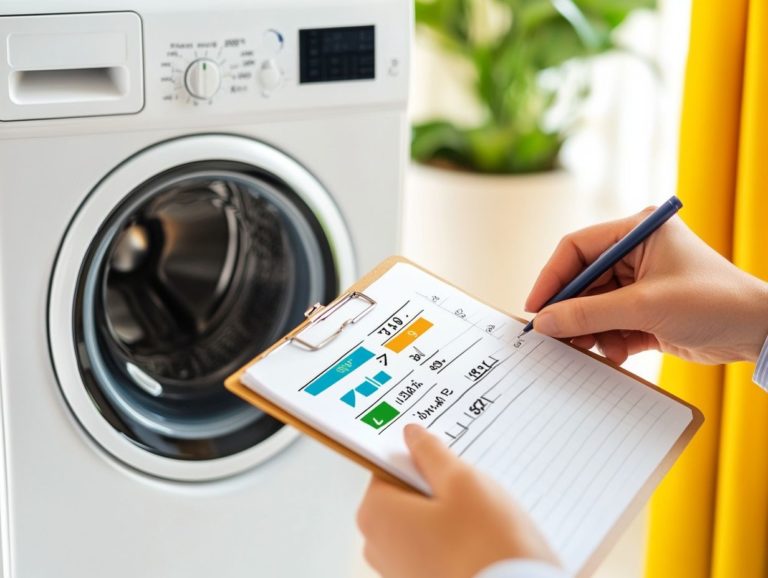The Impact of Energy-Efficient Appliances on Bills
Energy efficiency has emerged as a critical topic in today s world, and it s not hard to see why. With energy costs on the rise and environmental concerns becoming ever more pressing, understanding how energy consumption impacts both your finances and the planet is essential.
This article delves into the many benefits of utilizing energy-efficient appliances. From slashing your utility bills to minimizing your carbon footprint, the advantages are substantial.
You ll also find guidance on selecting the right appliances and ways to maximize your savings through proper usage and maintenance. It will also discuss other factors that influence your energy bills. Continue reading to uncover how you can make informed choices that enhance both your home s efficiency and the well-being of the environment.
Contents
- Key Takeaways:
- The Importance of Energy Efficiency
- Benefits of Using Energy-Efficient Appliances
- How to Choose Energy-Efficient Appliances
- Maximizing Savings with Energy-Efficient Appliances
- Other Factors Affecting Energy Bills
- Frequently Asked Questions
- What is the impact of energy-efficient appliances on bills?
- How do energy-efficient appliances affect overall energy consumption?
- Are there any other benefits of using energy-efficient appliances?
- Want to know how to spot energy-efficient appliances?
- Do energy-efficient appliances require special maintenance?
- Is it worth investing in energy-efficient appliances?
Key Takeaways:
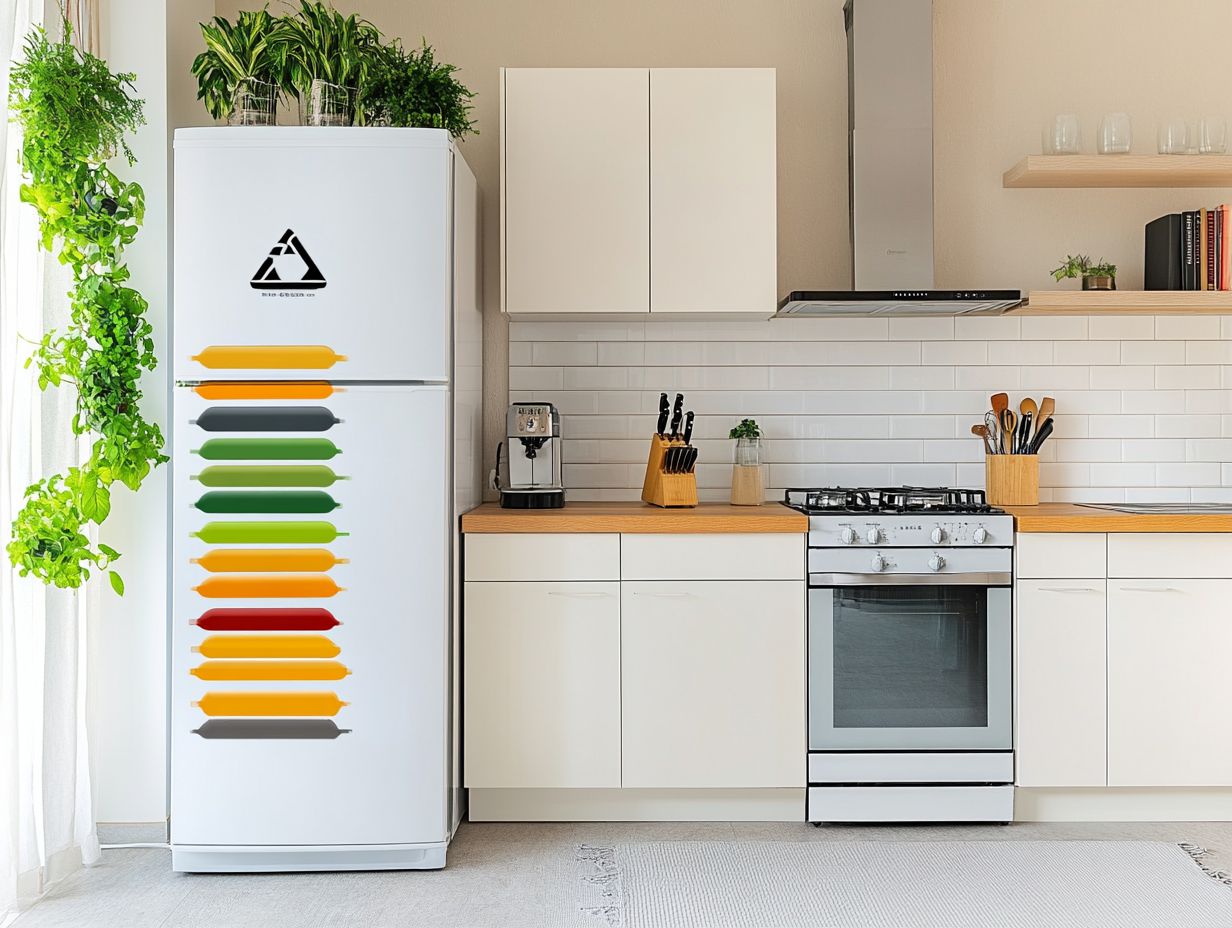
Energy-efficient appliances can significantly lower utility bills, helping households save money in the long run. By choosing these appliances, you not only save money but also reduce your environmental impact and contribute to a more sustainable future. For a deeper insight, understanding the costs of energy-efficient appliances is crucial, as well as knowing energy ratings and labels, and properly using and maintaining them to maximize savings on energy bills.
The Importance of Energy Efficiency
Energy efficiency is essential for reducing energy consumption. It allows you to lower your utility bills while also making a meaningful impact on pollution and climate change.
By incorporating energy-efficient appliances and technologies into your home, you boost its energy ratings and strengthen your financial resilience against rising energy costs. Being informed is key! Make smart choices, especially when adopting products that meet energy efficiency standards.
Your commitment to energy efficiency not only benefits your household but also aligns with larger societal goals, such as fostering environmental sustainability and minimizing your carbon footprint.
Understanding Energy Consumption and Costs
Understanding energy consumption and costs is crucial for homeowners aiming to optimize energy usage. Conducting thorough energy audits can help identify specific areas ripe for improvement, such as sealing drafts or upgrading insulation.
These audits act as a roadmap to enhancing your energy efficiency. Introducing energy-efficient technologies like LED lighting and Energy Star-rated appliances can significantly reduce your overall consumption. Smart thermostats are game-changers in this journey, as they learn your patterns and automatically adjust heating and cooling schedules.
This can translate into substantial cost savings for you. For instance, many households tend to rack up energy costs during peak hours or when appliances are left running. Recognizing these patterns gives you the power to make informed adjustments that can lead to meaningful savings.
Benefits of Using Energy-Efficient Appliances
Utilizing energy-efficient appliances presents many advantages that go beyond mere energy conservation. These appliances help in minimizing energy consumption and substantially reduce your utility bills.
For any homeowner aiming to enhance efficiency and secure long-term energy savings, investing in such appliances is a decision that pays dividends.
Lower Utility Bills
Lower utility bills are one of the most immediate and compelling benefits you ll enjoy when you invest in energy-efficient appliances. You can achieve substantial energy savings over time.
By choosing models like Energy Star-rated refrigerators, washing machines, or dishwashers, you can significantly cut down on your monthly expenses. For instance, the average family might save anywhere from $100 to $500 annually just by upgrading to more efficient appliances.
Plus, many regions offer tax credits and incentives, making these upgrades even more financially enticing. You might not even realize that switching to energy-efficient appliances can lower your bills and qualify you for rebates or tax deductions.
Statistics indicate that the average household could potentially save up to $2,000 over the lifespan of these appliances, highlighting the impressive long-term financial benefits of this investment.
Reduced Environmental Impact
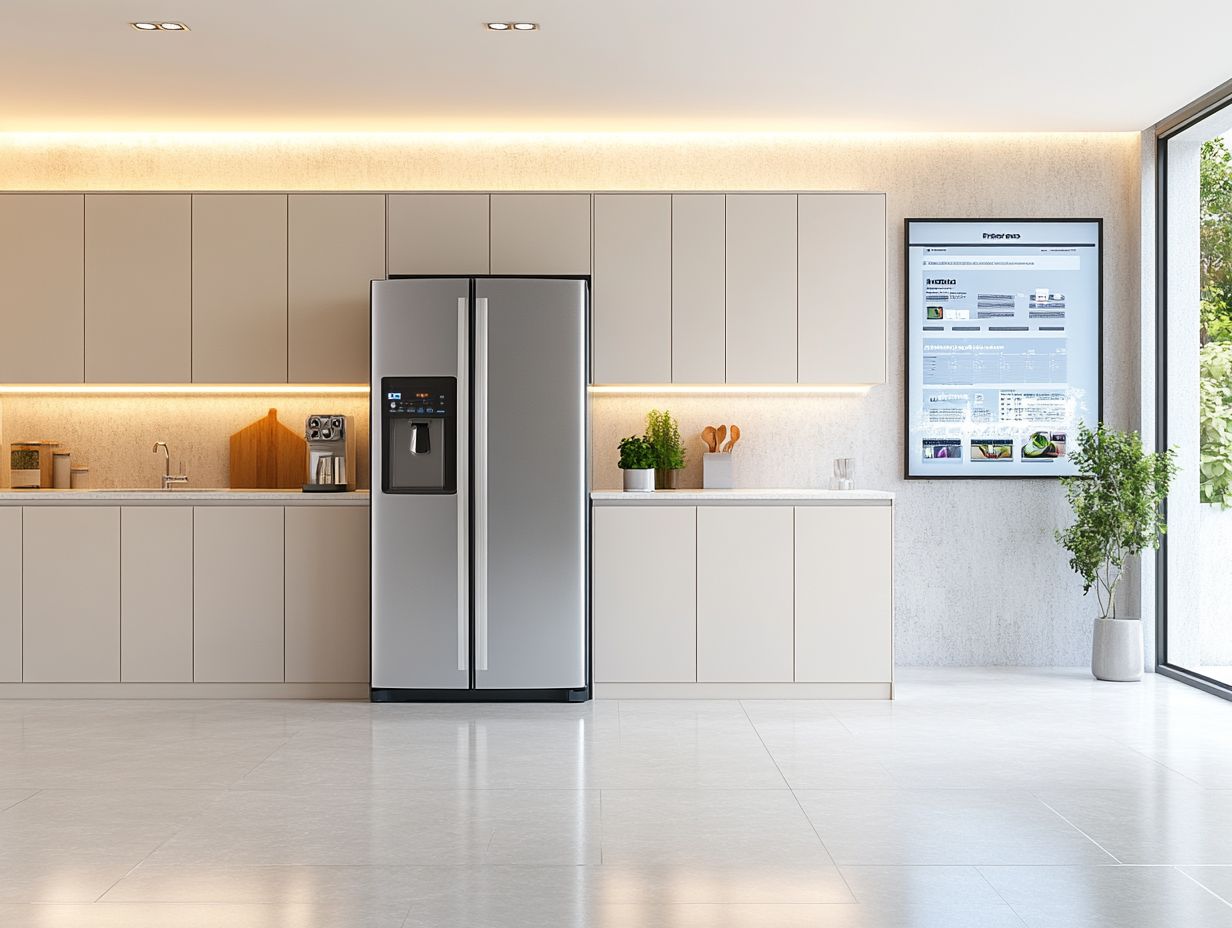
Adopting energy-efficient appliances not only saves you money but also plays a vital role in reducing your impact on the environment. It helps lower pollution and combat climate change.
By choosing technologies that consume less power, you significantly lower your overall energy consumption. This translates to decreased greenhouse gas emissions.
When you pair these appliances with renewable energy solutions like solar panels or wind turbines, you amplify their effectiveness! This powerful combination reduces your reliance on fossil fuels and contributes to a healthier planet by conserving natural resources.
As more people adopt these solutions, we move toward a sustainable future. This fosters an environment that prioritizes ecological well-being for generations to come.
How to Choose Energy-Efficient Appliances
When selecting energy-efficient appliances, it’s essential to consider a variety of factors. This includes understanding energy ratings, recognizing the importance of the Energy Star logo, and exploring the latest technologies that can significantly enhance your home’s energy efficiency.
Understanding Energy Ratings and Labels
Understanding energy ratings and labels is crucial for you as a consumer seeking the most energy-efficient appliances, especially those adorned with the Energy Star logo.
By navigating the various energy rating systems, you’ll gain clarity on how these labels are assigned and what they truly mean. Energy efficiency is assessed through detailed specifications that reflect an appliance’s performance, and having this knowledge gives you the power to make choices that lower your utility bills and promote environmental sustainability.
The Energy Star label, in particular, serves as a reliable beacon directing you toward products that meet stringent energy performance standards.
Being informed about these ratings helps you prioritize energy-saving options that lead to better investments aligned with your financial goals and eco-friendly values.
Maximizing Savings with Energy-Efficient Appliances
Maximizing your savings with energy-efficient appliances involves more than merely selecting the right products; it also includes using energy-saving tips for better results.
This means making use of smart power strips and activating low-power modes to enhance your efficiency and further reduce your energy bills.
Tips for Proper Usage and Maintenance
- Clean filters regularly to maintain optimal airflow.
- Check seals for air leaks to ensure your heating or cooling systems operate at peak performance.
- Utilize smart power strips to manage energy demand effectively by cutting power to devices that aren t in use.
- Set thermostats to moderate levels and keep appliances away from heat sources to extend their lifespan.
By adhering to these straightforward energy-saving tips, you can maximize the benefits of your energy-efficient devices while minimizing energy waste.
Other Factors Affecting Energy Bills
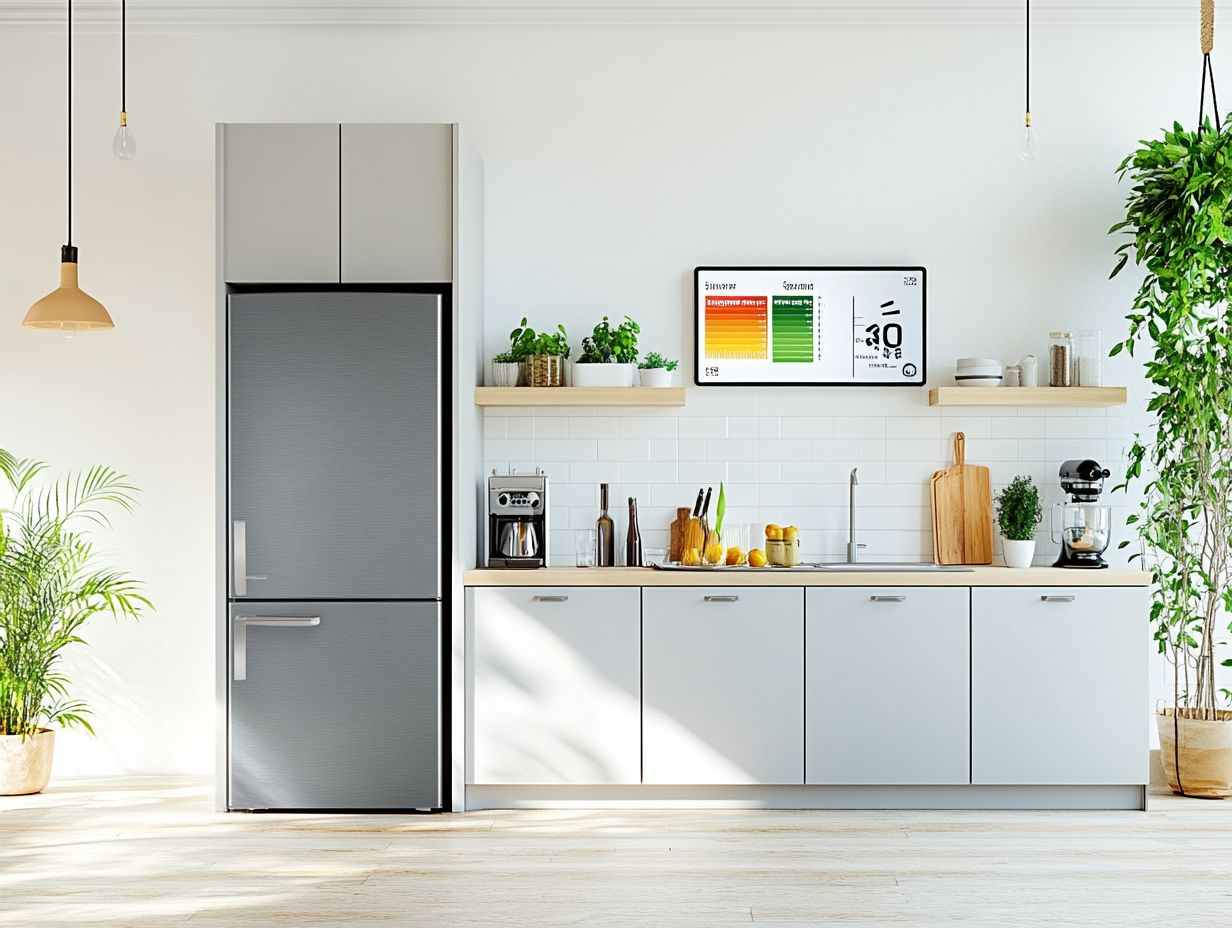
Other factors influencing your energy bills encompass external elements, such as weather patterns and seasonal fluctuations, alongside internal considerations like your household’s usage habits and the efficiency of your HVAC systems.
Weather and Seasonal Changes
Weather and seasonal changes can drastically cut down your energy bills, primarily due to their impact on heating and cooling needs.
As temperatures fluctuate, your household’s energy consumption shifts, especially during extreme seasons. If you live in a region with scorching summers, you might find yourself relying heavily on air conditioning.
Conversely, those in colder climates often prioritize heating during the winter months. It s essential to adjust your thermostat appropriately to ensure optimal efficiency without unnecessary energy waste.
You can adopt energy-efficient practices, like installing programmable thermostats, sealing leaks around windows, and using energy-efficient appliances, to save significantly on your utility costs.
By understanding these dynamics, you can manage your energy consumption more effectively throughout the seasons.
Household Usage Patterns
Household usage patterns play an important role in shaping your energy bills, as they dictate how much energy you consume in different areas of your home.
Understanding how your daily routines affect overall consumption can lead to impressive savings. Everyday habits, such as leaving lights on or running appliances during peak hours, can inflate your costs.
By examining these habits, you can find areas that need improvement. Smart thermostats and energy-efficient appliances are game-changers, adapting settings to fit your lifestyle while optimizing energy use.
For example, lowering the thermostat at night or when no one is home can significantly reduce your energy expenditure. Regularly monitoring and adjusting your usage patterns like washing clothes in cold water or ensuring that the dishwasher is fully loaded can contribute to more sustainable and cost-effective household management.
Frequently Asked Questions
What is the impact of energy-efficient appliances on bills?
Energy-efficient appliances can drastically cut your monthly energy bills. They use less energy to operate, leading to lower utility costs for consumers, as highlighted in the long-term benefits of energy-efficient appliances.
How do energy-efficient appliances affect overall energy consumption?
Energy-efficient appliances reduce overall energy consumption by using less electricity. This helps lower the demand for energy, which in turn reduces costs and greenhouse gas emissions.
Are there any other benefits of using energy-efficient appliances?
Aside from reducing energy bills, energy-efficient appliances positively impact the environment. They lower carbon emissions and help conserve natural resources, making them a more sustainable choice for your home.
Want to know how to spot energy-efficient appliances?
Energy-efficient appliances are labeled with an Energy Star logo, indicating that they have met or exceeded energy efficiency standards set by the U.S. Environmental Protection Agency. Look for this label when shopping for new appliances.
Do energy-efficient appliances require special maintenance?
No, energy-efficient appliances don t require special maintenance. However, it s important to follow the manufacturer’s instructions for regular cleaning and upkeep to ensure optimal performance and energy efficiency.
Is it worth investing in energy-efficient appliances?
Yes, investing in energy-efficient appliances can save you money in the long run. While they may have a slightly higher upfront cost, the savings on energy bills will make up for it over time. Plus, you’ll be doing your part to protect the environment.
Start saving today by choosing energy-efficient products!

